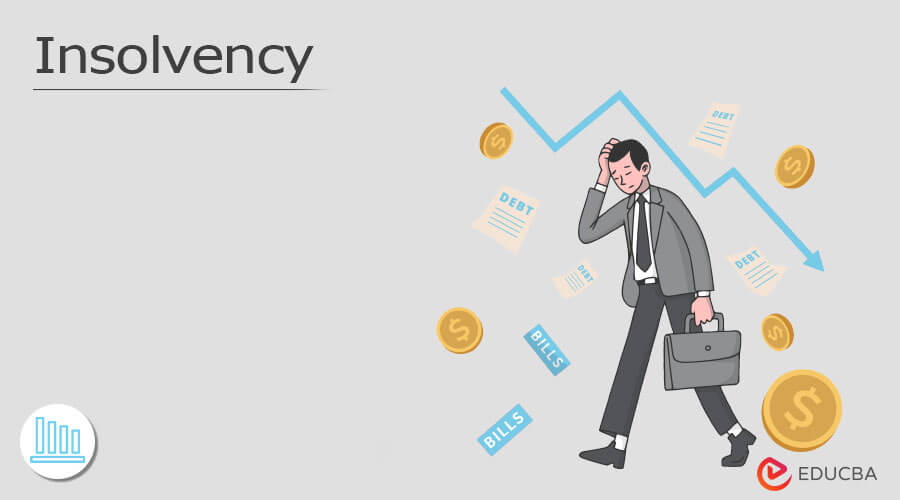The smart Trick of Insolvency Practitioner That Nobody is Discussing
The smart Trick of Insolvency Practitioner That Nobody is Discussing
Blog Article
Some Ideas on Insolvency Practitioner You Need To Know
Table of ContentsThe smart Trick of Insolvency Practitioner That Nobody is Discussing5 Simple Techniques For Insolvency PractitionerThe 30-Second Trick For Insolvency PractitionerInsolvency Practitioner Fundamentals ExplainedSome Of Insolvency Practitioner3 Simple Techniques For Insolvency PractitionerThe 2-Minute Rule for Insolvency Practitioner
Bankruptcy is when obligations are above the value of the firm, or when a debtor can not pay the debts they owe. A firm can come to be financially troubled because of a number of scenarios that bring about inadequate money flow. When confronted with insolvency, a company or person can call financial institutions directly and restructure financial obligations to pay them off.Organization proprietors may contact creditors straight and restructure debts into even more workable installations. Lenders are commonly amenable to this approach because they want to be settled and prevent losses, also if the repayment is on a delayed schedule.
The 30-Second Trick For Insolvency Practitioner
The proprietor produces a proposal detailing just how the debt might be reorganized using price decreases or other plans for support. The proposal shows creditors just how business might produce enough money circulation for rewarding procedures while paying its debts. Usually, a forgiven financial debt may be considered earnings by the Internal Revenue Solution (INTERNAL REVENUE SERVICE).

Things about Insolvency Practitioner
The organization may wind up paying big amounts of money in problems and be unable to continue operations. When procedures cease, so does the business's earnings. Absence of income results in accounts payable and creditors asking for money owed to them. Some business become bankrupt because their items or services don't advance to fit consumers' altering requirements.
Expenditures exceed earnings and bills remain unpaid. Cash-flow bankruptcy happens when a business has the properties to cover their debts yet they are in the wrong form, such as genuine estate instead of fluid funds. Balance-sheet insolvency, on the other hand, suggests a lack of properties in any kind of kind to cover financial obligations.
The internal revenue service states that an individual is bankrupt when the complete responsibilities exceed total possessions. A bankruptcy, on the other hand, is a real court order that depicts exactly how an insolvent individual or company will repay their financial institutions, or exactly how they will certainly market their assets in order to make the repayments.
5 Simple Techniques For Insolvency Practitioner

Comprehending the aspects that can cause bankruptcy, such as overspending, can help you avoid insolvency and its repercussions.
What Does Insolvency Practitioner Mean?
It is Insolvency Practitioner well known that supervisors and police officers of corporations (and managers of restricted responsibility companies) owe fiduciary tasks to their companies and their investors (or members). These fiduciary obligations are defined by state laws and, though there are variations from state to state, they usually include an obligation of loyalty and a duty of care.
The obligation of treatment requires directors and police officers to work out diligence, to make enlightened decisions, and to act in excellent faith so that their actions are in the very best passion of the firm. Past the scope of this conversation, you can try here some states permit these duties to be limited either by so noting in the organizational papers or conforming with various other demands.
The Buzz on Insolvency Practitioner
The majority of states specify insolvency in 2 ways( 1) when a firm's liabilities end up being more than the amount of its properties or (2) when the firm comes to be incapable to pay its financial debts as they come to be dueand accept both definitions (Insolvency Practitioner). The change in obligations occurs due to the fact that when a company is insolvent, there is no worth in the business past that owed to the firm's lenders so that the equity holders no longer have a financial risk in the firm
Beware concerning offering shareholders advantageous treatment at the expense of lenders (e.g., licensing and moneying a dividend or a stock redemption). Beware concerning favoritism in between courses of shareholders. Make affordable initiatives to learn all the realities before taking a details strategy; directors should really believe that any choices made are in the finest passions of the corporation in its whole (i.e., decisions will be assessed in knowledge in light of the impact of such actions on the corporation).
In any kind of bankruptcy or insolvency case, settlements made to specific financial institutions at the expenditure of various other creditors can be clawed back, specifically if there is some Source link in between the firm and the lender. Consider suggesting at a yearly investor conference (or any other meeting of shareholders) a resolution attesting that all prior organization choices and activities taken by the directors and police officers of the company were absorbed good faith after an exercise of reasonable treatment.
Fascination About Insolvency Practitioner
Totally divulge any type of individual or company partnerships with parties beyond of transactions entailing the corporation to prevent the look of a dispute of interest. In reviewing possible fund raising purchases or a sale of possessions of the troubled corporation, know that these purchases might be scrutinized later in light of any succeeding growth of directors' fiduciary tasks to include creditors.
Report this page